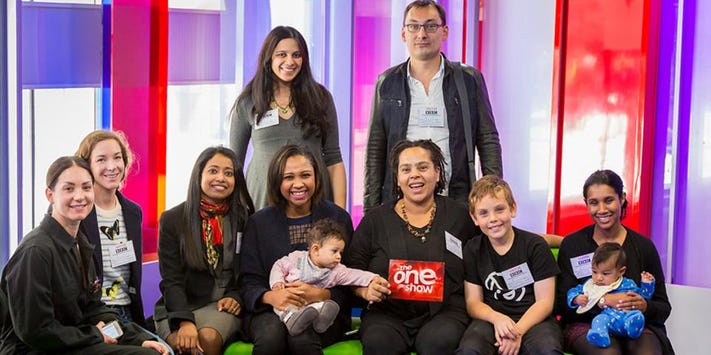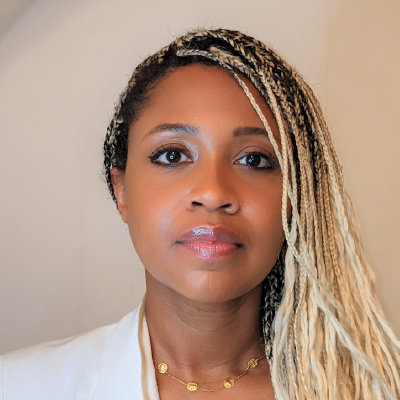Listicle: VC Investor June Angelides Warns Founders ‘To Be Careful Who You Invite To The Table’

Investors will be with you for a long time – and ending the relationship can be harder than getting a divorce, says June Angelides, a business owner, venture capitalist, and columnist.
Before we discuss the business tips she’s shared in her most recent FT column. Here’s a breakdown of who she is for those of you who don’t know.
Angelides was raised in Lagos, Nigeria where she had an early introduction to entrepreneurship through her family. Her uncle Ben Murray Bruce founded Silverbird, the first cinema in Nigeria. She recalled in an interview with Forbes that she admired “his ability to come up with an idea and make it happen” from her time spent with him on the construction sites.
Eventually, she left Nigeria at 17 and studied in the UK. After university through a friend, she was connected to the media conglomerate Reuters where she landed a role on the syndicated loans news desk doing analytics and league table write-ups for reporters.
In 2010, after a few years at Reuters Angelides was contacted by a recruiter about a role at Silicon Valley Bank (SVB). She took on the interview, got the job, and gained lots of experience.
SVB proved to be a great introduction to entrepreneurship. Not only did she get to build relationships with some of London’s most successful startups today she was in a startup environment herself and watched SVB grow from a small team to one of London’s leading banks for startups.
Angelides had her first child a few years later and to work more flexible hours she decided to move into the early-stage banking team working with and recruiting startups who were much earlier along in their journey, she told Forbes. The now-mother-of-three worked alongside organizations such as Wayra, Entrepreneur First, and Techstars in their formative years with the responsibility of mentoring and advising early-stage startups as well as looking for investments.
But it later dawned on her that whilst she understood business she failed to grasp some of the technical concepts – so she decided she needed to take up coding classes on her second maternity leave. Searching for courses it was obvious fitting anything around her schedule as a mother would be tough “nobody thought mums wanted to learn anything whilst on maternity leave, which was very upsetting.”
Rather than complain – or worse give up – she saw an opportunity to provide Mums with courses that suit their needs and Mums In Tech was born.
Mums In Tech grew and provided mothers with 8-week courses. She then spent years working with several companies that included Microsoft, Ministry of Justice, SVB, Three, and Investec Bank as part of a collaboration. But she soon realized that although she was helping nurture amazing talent, they were coming up with great ideas and they weren’t getting funding.
That’s when she decided to use her skills, experience working in tech and business to become a VC. She’s invested in dozens of amazing startups – most recently Ruka, a Black-owned hair startup that is currently flourishing.
What advice did she give in her latest column?
“Any founder will tell you how grueling fundraising can be: speaking to hundreds of investors, meeting after meeting, telling your story, and hoping the person on the other side will connect, care and fund your venture. It’s not just emotionally exhausting, it’s also time away from your business.
“Many of the investors you speak to seem like a good fit on paper. So when lucky entrepreneurs are faced with term sheets, how should they decide who to let into their company? Co-founders and the team This is the elephant in the room and often the first time you are forced to think about splitting equity.
Splitting equity equalling between founders
“Some solo founders bring on co-founders at different stages of the business, but I believe the earlier this happens, the easier it is to have conversations about dividing equity. Michael Seibel, group partner of seed fund Y Combinator, advises founders to split equity equally, noting that their dynamic is critical to success and equality ensures trust. There is also the question of giving employees ownership of the business as, typically, 10 percent of equity is reserved for senior employees. It can be hard to decide who gets what.
The app that can help you understand who is contributing more to the business
“The Ownership app uses an algorithm to calculate the equity split between workers and investors, based on their contributions. For example, people log their hours worked, then the algorithm uses this information to generate a market valuation and cap-table in real-time. Some experts question whether employee ownership boosts productivity: a Harvard Business Review study found that companies with employee stock ownership schemes grew “much faster” than they would have without such plans. The dilution problem.

“It’s fairly normal to give away 20 to 25 percent of your business during a fundraising round. That sounds like a lot — because it is. Sometimes you have to decide what to give away before you even have a product, which can feel scary. I encourage founders to think of it like subletting a room in your home.
What does it really mean to have an investor? Can they do what they want?
“Whoever takes the space has the right to come around any time. They might ask you for food, have a look at your kitchen and call out your cleanliness standards. Your investors will be sticking around for a while — even the small ones — so think about every slice of that pie carefully. Try not to give out equity too freely at the beginning to people who do not offer long-term value to the business.
“It can be tempting to offer equity for payment in exchange for advice, services or introductions, but it can be a slippery slope because you’re joined at the hip for a long time. Who is at the table? Imagine a dining table with all your investors sitting around it. They don’t have to get along, but you must know why they are there, beyond just capital.
“Your smallest investor, for example, may be the person who can secure your first paying customer or who coaches you to be a better leader. Many founders forget that you will come back to every investor every time you want to fundraise, and they can become obstacles if you are not aligned. I have seen scenarios where investors have very different agendas for the company. This is where doing due diligence — on everyone from your lead investor to your angels — is critical. Having the right level and blend of expertise is paramount too. Can your investors commit to the business?
You do know investors can remove founders right?
“How have they behaved previously when things have not gone so well, for example? Have they removed founders or interfered? Speak to entrepreneurs in companies they have exited and written off. Remember that getting rid of an investor can be harder than getting a divorce.
“As more founders make space for individuals to write smaller cheques, dealing with a long tail of investors can be cumbersome. Several platforms simplify managing your cap table, including AngelList Venture and Carta. Newcomers, Vauban and Odin also have set out to democratize access to cap tables. Diversifying your cap table We are seeing more angel networks professionalizing and creating special purpose vehicles to invest in start-ups.
“Some of my favorite groups are; Alma Angels, which focuses on supporting female founders; Transact Global, a diverse community of emerging fund managers; Angel Investing School, which offers training on investing in start-ups; and Black Angel Group, a collective that invests in seed to series A start-ups around the world. I’d love to see more ownership remain with the founders and more transparency throughout the fundraising process. As the table gets longer, and more personalities take a seat, the focus should always be prioritizing the company’s success.”




